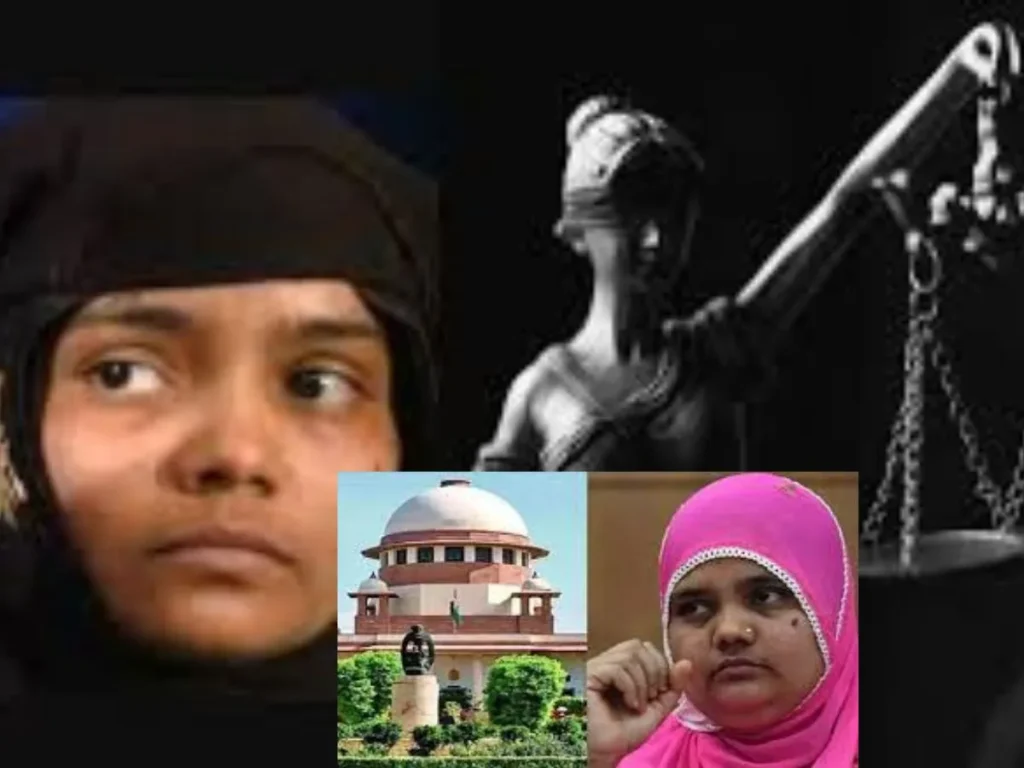Supreme Court of India Revokes Release of Rapists Involved in Bilkis Bano Case 2002
In the aftermath of her assailants being released in extreme controversial Bilkis Bano Case, the victim Ms. Bilkis Bano expressed deep disillusionment, stating that the decision to set them free had profoundly shaken her confidence in the justice system. “How can the pursuit of justice for any woman culminate in such a manner? I had faith in the highest courts of our nation and in the system itself, and I was gradually learning to cope with my trauma,” she conveyed, urging the Gujarat government to rectify this grave injustice.
The assault on Ms. Bilkis Bano and her family stands as one of the most heinous crimes during the riots that erupted following the tragic incident where 60 Hindu pilgrims perished in a fire on a passenger train in Godhra. Accusing Muslims of igniting the fire, Hindu mobs targeted Muslim neighborhoods, resulting in over 1,000 casualties, predominantly Muslims.
On the morning following the train fire, Ms. Bilkis Bano, then 19 and expecting her second child, was visiting her parents in the village of Randhikpur near Godhra with her three-year-old daughter. As rioters attacked the village, setting Muslim homes ablaze, she and 16 relatives sought refuge, hiding in mosques or relying on the compassion of Hindu neighbors in the subsequent days.
On March 3, 2002, a group of men armed with swords and sticks attacked them mercilessly. They brutally assaulted Bilkis Bano, snatched her daughter, and callously threw her on the ground, causing severe harm. The attackers, familiar faces from her upbringing, callously ignored her pleas for mercy. Her cousin, who had recently given birth, was raped and murdered, along with her newborn.
Surviving the ordeal by losing consciousness, Bilkis Bano endured a harrowing journey for justice. Despite attempts by some police and state officials to intimidate her, the destruction of evidence, and the burial of the deceased without proper examinations, she persevered. The initial arrests occurred in 2004 after India’s Supreme Court transferred the case to federal investigators, citing the inability of Gujarat’s courts to deliver justice.
While numerous individuals have been convicted over the years for their involvement in the riots, some high-profile accused secured bail or were acquitted by higher courts. Notably, Maya Kodnani, a former minister in Gujarat cabinet, labeled a “kingpin of the riots” by a trial court, was among those granted reprieve. In 2013, a Supreme Court panel found insufficient evidence to prosecute Mr. Narendra Modi, who later became the prime minister. Despite this, critics persist in holding him accountable for the riots that occurred under his leadership.

The Bilkis Bano case has unfolded over the years, marked by legal proceedings, investigations, and significant developments.
Here is a timeline of key events in the Bilkis Bano case:
- 2002, March 3: The Godhra train incident sparks communal riots in Gujarat. Bilkis Bano, then 19 and pregnant, faces a brutal attack during which her family is assaulted, and she endures physical and sexual violence.
- 2004: The case gains national attention, and India’s Supreme Court intervenes, transferring it to federal investigators due to concerns about the impartiality of the Gujarat courts. The investigation is taken up by the Central Bureau of Investigation (CBI).
- 2008: The trial begins, with the CBI filing charges against multiple individuals for their involvement in the 2002 riots and the specific crimes against Bilkis Bano and her family.
- 2008, January: A Mumbai court convicts and sentences 11 men to life imprisonment for their roles in the crime, while seven others receive shorter sentences.
- 2009, April: The Bombay High Court upholds the convictions but allows an appeal in the Supreme Court for enhancement of the sentences.
- 2011, April: The Supreme Court upholds the convictions but orders the reconsideration of the quantum of punishment for the convicts.
- 2012, January: The Supreme Court increases the sentences for the 11 men convicted, while dismissing the appeal for enhancement of sentences for seven others.
- 2013: Bilkis Bano expresses disappointment as the Supreme Court rejects her plea for action against policemen and doctors accused of dereliction of duty during the initial investigation.
- 2017: Bilkis Bano continues her fight for justice, highlighting attempts to intimidate her and the challenges faced during the legal process.
- 2022: Reports emerge that some of the convicts in the Bilkis Bano case are granted release, leading to public outcry and renewed discussions on the state of justice for survivors of communal violence.
- 2024: The Supreme Court of India cancels the release of individuals convicted in connection with the 2002 riots, underscoring on-going challenges in ensuring accountability for crimes committed during communal clashes.
The timeline illustrates the persistence of Bilkis Bano and the complexities involved in securing justice for survivors of communal violence in India.